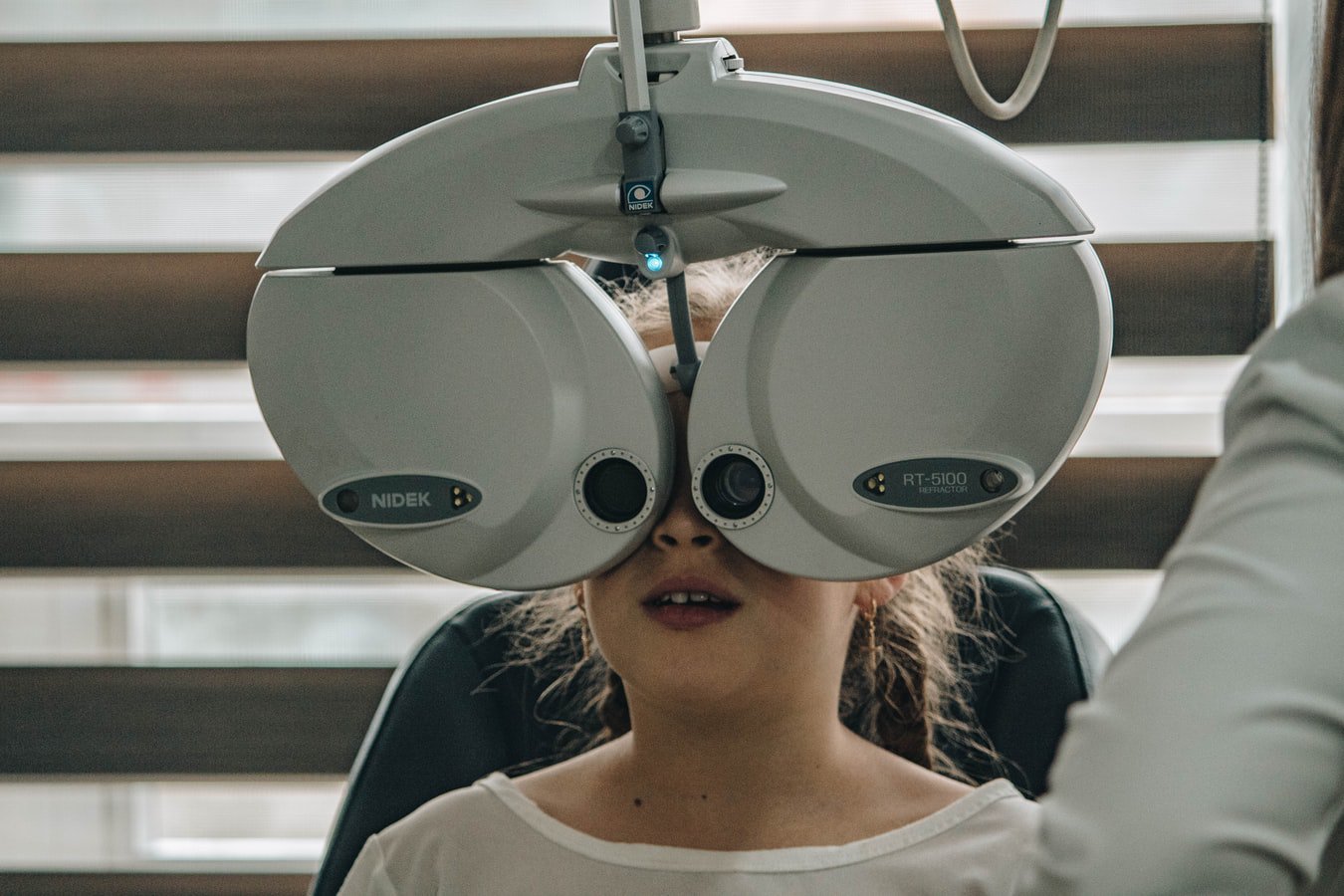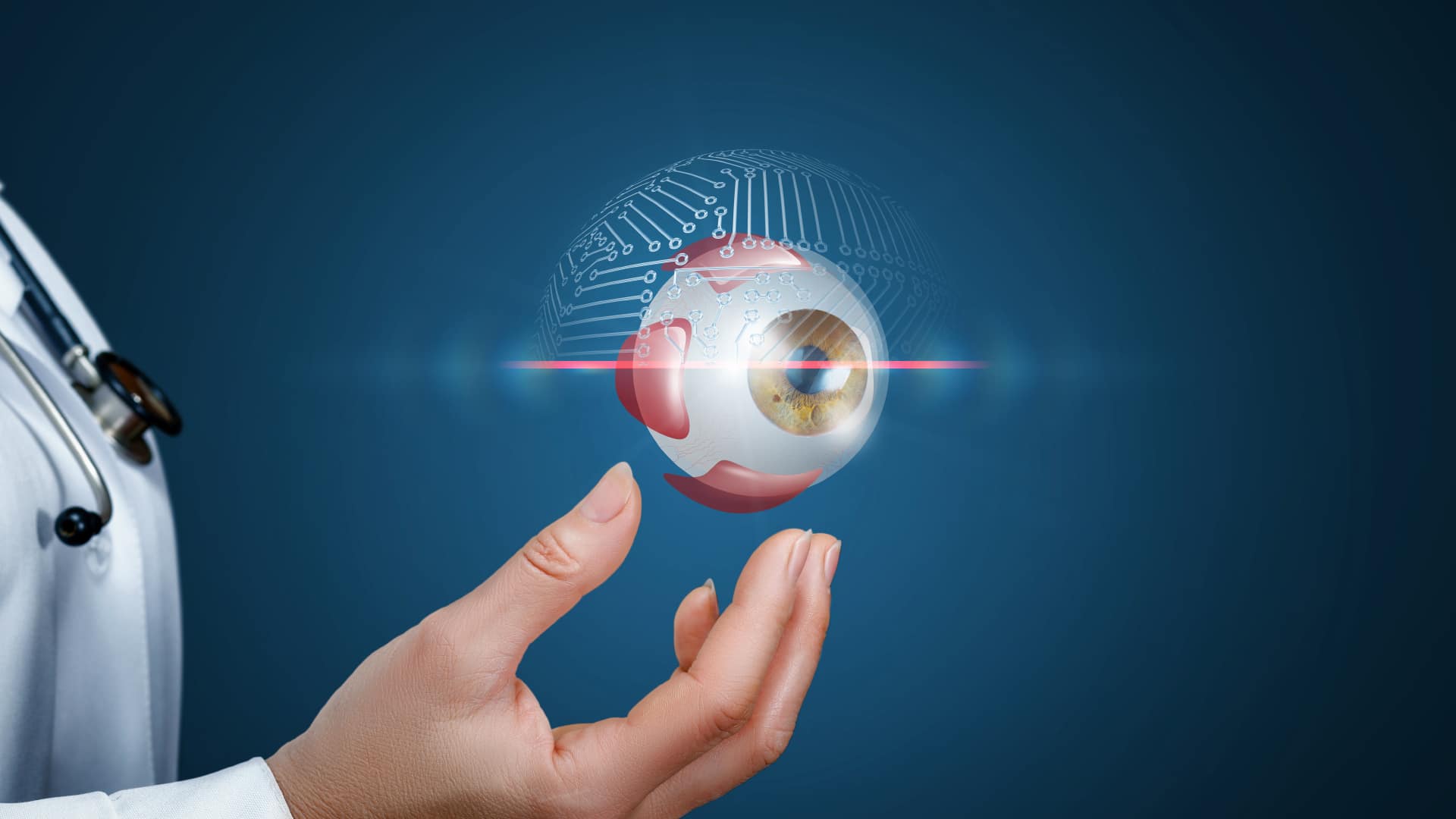Tag: sydney eye clinic
How often should you visit a Sydney eye clinic
Your age, as well as your eyes, family, and other factors, have a role.
Your doctor could advise regular Sydney eye clinic exams every two years if you’re under 40 and don’t have any eye issues. Or they could inform you that no tests are necessary. Find out their recommendations for you.
Every 1-2 years, everyone 40 years of age or older should get their eyes examined.
You should visit Sydney eye clinic annually if you’ve ever had eye problems or if you’re at risk of doing so (for example, if someone in your family has).
Why? You should get your eyesight checked to discover whether you have any major, often “silent” issues like glaucoma, age-related macular degeneration, cataracts, or diabetic retinopathy.
When your kid is a newborn and again at each routine medical checkup, if they don’t have any risk factors for eye issues, their eyesight should be assessed. It will be simpler for the doctor to evaluate their eyes when kids are 3 years old. Every one to two years after the first grade, kids should get their eyes checked.

Are My Eyes in Danger?
You may need more regular tests if you have a health issue like high blood pressure, perform a profession that demands a lot of eye contact, or use medications that might impair vision.
Get your eyes tested if you have type 1 diabetes within five years of your diagnosis and then annually after that.
If you’re told you have type 2 diabetes, you should be checked out right away. After that, get your eyes tested annually.
How to Get Ready
Mention any visual issues you may have when you call to schedule your test.
Make a note of any questions you have for the doctor before you visit. Be prepared to give them an update on any medications you use as well as your (and your family’s) history of eye health.
Bring the prescription, your glasses, and your contact lenses. Bring sunglasses as well for the return journey. To dilate your pupils, the doctor could use eye drops. It is known as dilation. After that, light sensitivity will affect your eyes.
When You Get a Sydney Eye Clinic Exam
The eye doctor or a member of the office staff will first inquire about your past medical and visual history.
Depending on the technology utilized, the test might run anywhere from 30 minutes to several hours. It will cover your eye health and eyesight.
The majority of the following Sydney eye clinic exams, as well as maybe a few more, will likely be performed on you:
Test of eye muscle movement: This determines the alignment of your eyes. The physician will observe how your eyes move while you track a moving object (such as a finger tip or their pen) as it changes direction.
The cover test reveals how effectively your eyes cooperate. You’ll fix your gaze on a little object in the distance. To measure how much your eyes move, the doctor will cover and uncover each eye. Additionally, your doctor will be looking for an eye that shifts away from the intended target. Strabismus is the medical term for this issue. You are welcome to retake the Sydney eye clinic exam with a nearby target.

External examination and student responses
The doctor will observe how your pupils respond to light and nearby objects. Your eyelids’ posture and the whites of your eyes will also be examined at the same time.
You’ll sit in front of an eye chart with progressively smaller letters as you read down each line to undergo a visual acuity test. You’ll cover each eye in turn and read aloud while moving down the chart while using the other eye until you can no longer make out the letters.
Refraction testing: The doctor might use a computerized refractor to determine your precise lens prescription. By switching the phoropter back and forth between lenses and asking you which is better, your doctor will adjust the prescription. You won’t need this Sydney eye clinic exam if you don’t need corrective glasses.
The slit lamp (biomicroscope) enlarges and illuminates the front of your eye. In order to search for indications of certain eye disorders, the doctor utilizes it to examine your cornea, iris, lens, and back of your eye.
The retina, retinal blood vessels, fluid in your eyes (which your doctor may refer to as vitreous fluid), and the head of your optic nerve may all be seen during a retinal examination (also known as an ophthalmoscopy).
Tests for glaucoma determine if the fluid pressure within your eyes is within a normal range. It is quick, painless, and there are a few methods to accomplish it:
The most precise device is the tonometer. You’ll be given eye drops to numb them. To measure the pressure, the doctor will instruct you to look straight ahead as he or she lightly touches the front surface of each eye using an instrument known as an applanation tonometer or Tonopen.

Noncontact tonometer or puff of air: As you look at a target, a machine will blow a little puff of air into each of your eyes. Your eye’s resistance to the puff reveals how much pressure is there there.
Pachymetry: In this Sydney eye clinic examination, the thickness of your cornea is measured using ultrasound. False low-pressure readings may be the result of thin corneas. False high-pressure readings may result from thick corneas. One test may be administered to you in order to establish a baseline for comparison with subsequent results. People who need corneal surgery may utilize it.
Pupil enlargement: The doctor will use instruments and lighting to examine the inside of your eyes after thoroughly enlarging your pupils. It takes the eye drops for this portion of the test 20 to 30 minutes to start working. They obstruct your eyesight and increase your eyes’ sensitivity to light. These effects might linger for many hours or more. You may need those sunglasses on the way home because of this. Modern devices can see the very back of your retina without dilation of your pupils.
Perimetry of the visual field: Your visual field is the region in front of you that you can see clearly without shifting your eyes. Your Sydney eye clinic doctor will map what you see at the edges (periphery) of your visual field using one of three tests and utilize this map to identify any eye issues.
4 ways to find a Sydney eye clinic
1. Request referrals from relatives or friends.
2. Seek advice from your primary care physician.
3. Contact a neighboring hospital’s ophthalmology or optometry department and inquire about the physicians that work there.
4. Speak with local and state organizations, associations, and academies of ophthalmologists and optometrists to see if they can assist you.
… Read MoreHandy question tips that help during Sydney eye clinic appointments
What questions are you asking your Sydney eye clinic patients? By spending four minutes asking these eight questions, you can significantly increase both your capture rate and your second pair sales.
Who knows, you may even uncover additional medical conditions as well!
- Please describe what you currently wear?
This simple question helps determine what the patient is wearing, and just as important, what they are not wearing. It is a good ice breaker question. It also gives the Sydney eye clinic direction about other visual options that the patient needs such as sun wear, occupational wear or contact lenses. - Describe what you dislike about your current visual solution?
This question is built to determine where to focus, and which areas you need to fix or alter. For example, a patient may report glare at night, giving you a great reason to prescribe new visual solutions. - Do you have any special vision needs for your hobbies or occupation? Please describe. This opens the door for a conversation about second or third pairs of eyewear.
- Do you suffer from any of the following? Eyestrain, dry or irritated eyes, itchy eyes, fluctuating vision, headache, or red eyes.
This question is to pull out visual issues that many people do not associate with allergies, dry eyes, accommodative issues, or convergence issues. - How many hours a day/night do you use a computer?
The goal of this question is to determine the patient’s near point needs and the potential need for occupational eyewear. - Do you have trouble focusing in the distance after reading or using the computer for more than 10 minutes?
This helps identify accommodative or early presbyopia problems. - Do you have trouble reading street signs or with seeing glare from oncoming headlights at night?
We are looking for glare issues and the ability to sell anti-glare solutions. - Will you be purchasing eye wear, sun wear or contact lenses today?
Use this as your final question. If the answer is “yes,” it will be an easy sale. If the patient says, “maybe,” you need to look for prescription changes.

Preparing ahead of time can help you best manage your vision health. Here are some questions you can take along when you visit a Sydney eye clinic.
- What tests will we be doing today, and do they include a dilated Sydney eye clinic exam to check for diseases such as glaucoma and macular degeneration?
- Is there anything about my medical or family history that puts me at higher risk for eye disease?
- Are there symptoms to watch for and ways to monitor my eye health?
- How often do you recommend I return for a comprehensive Sydney eye clinic exam?
- Are there lifestyle changes that might lower my risk?
Things to bring to your appointment:
- Your health insurance information and a photo ID
- Eyeglasses or contact lenses you currently wear
- Information on any history of eye disease in your family
- A list of your medications, allergies, and other conditions
- A notepad and pen, or digital device, to take notes
- A friend or relative to accompany you if possible
If You are Diagnosed with an Eye Disease
Take an active role in the understanding and treatment of your condition. Here are some questions to ask your Sydney eye clinic when you discuss your diagnosis.
- Am I likely to need medications or surgery, now or in the future?
- Do these medications have any side effects?
- Will insurance cover these treatments, or is financial assistance available?
- What symptoms should I watch for, and do I need to contact you about any right away?
- Should I be concerned about driving?
- How often will you check my eyes to make sure they are not getting worse?
- Could I benefit from low vision services–such as occupational therapy or technological aids–to help me use my remaining vision?
- Do you have any materials or other suggestions on how I can learn more about this disease?

Additional questions to ask
1. Which Tests Will Be Performed?
Knowing what your eye doctor will do will put your mind at ease if you have any anxiety before your next Sydney eye clinic exam. You’ll also feel more comfortable.
Find out any instruments they will use to perform tests. You should also find out why specific tests are being conducted.
Do not hesitate to ask about the potential health risks and side effects of the tests. For instance, by knowing that a particular test will interfere with your vision, you can arrange for someone to drive you home after your appointment.
It never hurts to be well-informed and prepared, especially when it comes to your vision!
2. What Do My Results Mean?
The ophthalmologist will pick tests to give insights into your vision based on your eye issues or symptoms. Once the results are out, find out from your eye doctor what the results mean.
When you have your results, you can discuss any next steps that you may need to take. If anything is not clear, do not hesitate to ask your ophthalmologist to give you any further clarification.
3. Are Follow-Up Visits Necessary?
Many people don’t bother scheduling follow-up visits with their eye doctor frequently if they don’t have an eye condition or problems with their vision. You only have one set of precious eyes and taking good care of them should be a top priority.
The only way to do that is by visiting your eye doctor regularly. Even if you believe your eye health is excellent, preventative care can catch any issues before they escalate.
That’s why it’s so important to talk to your ophthalmologist about how often you should schedule your Sydney eye clinic examinations. The number of Sydney eye clinic exams you need will likely change depending on age.
As you get older, you’ll need more frequent Sydney eye clinic exams.
4. Should I Make Any Lifestyle Changes to Prevent Eye Diseases and Disorders?
To avoid common eye disorders and diseases, the doctors at Takle Eye Group recommend asking whether it’s necessary to make any lifestyle changes. Your ophthalmologist will educate you on the steps to take to keep your eyes safe and as healthy as possible.
For instance, you may discover that certain foods can protect your eye health and reducing screen time will prevent dry eyes. Armed with this information, you can start treating your eyes with more respect and know that your vision will last you many more years!
Related: How often should you visit a Sydney eye clinic
… Read MoreRecent Posts
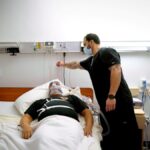 Bulk-Bill Sleep Study Brisbane: Affordable Options for LocalsWhat Are Bulk-Bill Sleep Studies and How Do They Work in Brisbane? Bulk-bill sleep study Brisbane services provide you with direct billing to Medicare, eliminating upfront costs for diagnostic testing. When you receive a bulk-bill sleep study, the […]
Bulk-Bill Sleep Study Brisbane: Affordable Options for LocalsWhat Are Bulk-Bill Sleep Studies and How Do They Work in Brisbane? Bulk-bill sleep study Brisbane services provide you with direct billing to Medicare, eliminating upfront costs for diagnostic testing. When you receive a bulk-bill sleep study, the […]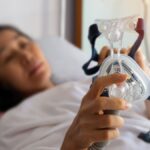 Sleep Apnea Test Adelaide: Early Diagnosis for Better HealthWhat Is Sleep Apnea and Why Is Early Diagnosis Important? Sleep apnea is a serious sleep disorder where your breathing repeatedly stops and starts during sleep. This condition affects millions of people worldwide, yet many remain undiagnosed, missing […]
Sleep Apnea Test Adelaide: Early Diagnosis for Better HealthWhat Is Sleep Apnea and Why Is Early Diagnosis Important? Sleep apnea is a serious sleep disorder where your breathing repeatedly stops and starts during sleep. This condition affects millions of people worldwide, yet many remain undiagnosed, missing […]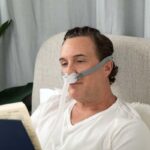 Sleep Apnea Explained: Causes, Symptoms, and Treatment OptionsIntroduction: Why Sleep Apnea Deserves Your Attention Picture this: you go to bed at a reasonable hour, expecting a full night’s rest, yet you wake up feeling drained, irritable, and foggy-headed. It’s not just “bad sleep” — it could be sleep apnea, a […]
Sleep Apnea Explained: Causes, Symptoms, and Treatment OptionsIntroduction: Why Sleep Apnea Deserves Your Attention Picture this: you go to bed at a reasonable hour, expecting a full night’s rest, yet you wake up feeling drained, irritable, and foggy-headed. It’s not just “bad sleep” — it could be sleep apnea, a […]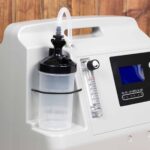 Top 5 Online Stores to Purchase a Portable Oxygen Concentrator MachinePortable oxygen concentrators (POCs) have become essential devices for individuals with respiratory conditions, providing a convenient and reliable source of oxygen. With the rise of e-commerce, purchasing a POC has never been easier. However, selecting […]
Top 5 Online Stores to Purchase a Portable Oxygen Concentrator MachinePortable oxygen concentrators (POCs) have become essential devices for individuals with respiratory conditions, providing a convenient and reliable source of oxygen. With the rise of e-commerce, purchasing a POC has never been easier. However, selecting […] Portable Oxygen Concentrator Australia: Features and BenefitsIn recent years, the demand for portable oxygen concentrators (POCs) has surged in Australia, largely due to the increasing prevalence of respiratory conditions and the need for greater mobility among patients. These devices provide a continuous supply […]
Portable Oxygen Concentrator Australia: Features and BenefitsIn recent years, the demand for portable oxygen concentrators (POCs) has surged in Australia, largely due to the increasing prevalence of respiratory conditions and the need for greater mobility among patients. These devices provide a continuous supply […]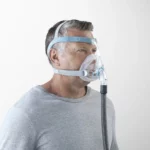 CPAP Masks Australia: A Comprehensive Guide to the Best Options AvailableContinuous Positive Airway Pressure (CPAP) therapy is a common and effective treatment for obstructive sleep apnea. One crucial component of this therapy is the CPAP mask, which delivers the airflow necessary to keep the airways open during sleep. In […]
CPAP Masks Australia: A Comprehensive Guide to the Best Options AvailableContinuous Positive Airway Pressure (CPAP) therapy is a common and effective treatment for obstructive sleep apnea. One crucial component of this therapy is the CPAP mask, which delivers the airflow necessary to keep the airways open during sleep. In […]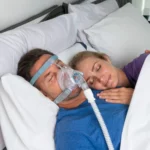 CPAP Mask Online Shopping: How to Ensure You’re Choosing the Right Mask for YouChoosing the right CPAP mask for your needs is essential for effective sleep apnea treatment. With the convenience of online shopping, it’s possible to find various options without stepping out of your home. However, the multitude of choices available […]
CPAP Mask Online Shopping: How to Ensure You’re Choosing the Right Mask for YouChoosing the right CPAP mask for your needs is essential for effective sleep apnea treatment. With the convenience of online shopping, it’s possible to find various options without stepping out of your home. However, the multitude of choices available […] Discovering Your Sleep Type: The Benefits of a Sleep Type TestDo you often find yourself tossing and turning at night, struggling to fall asleep? Or maybe you drift off to dreamland effortlessly but still wake up feeling groggy and exhausted. If either of these scenarios sounds familiar, it's possible that you […]
Discovering Your Sleep Type: The Benefits of a Sleep Type TestDo you often find yourself tossing and turning at night, struggling to fall asleep? Or maybe you drift off to dreamland effortlessly but still wake up feeling groggy and exhausted. If either of these scenarios sounds familiar, it's possible that you […] Sleep Apnea Testing in Brisbane: Your Complete GuideSleep apnea is a common sleep disorder that affects many people in Brisbane and around the world. If left untreated, it can lead to serious health complications. In this complete guide, we will explore everything you need to know about sleep apnea […]
Sleep Apnea Testing in Brisbane: Your Complete GuideSleep apnea is a common sleep disorder that affects many people in Brisbane and around the world. If left untreated, it can lead to serious health complications. In this complete guide, we will explore everything you need to know about sleep apnea […] Sleep Study Ipswich: Analysing Sleep Patterns in QueenslandSleep is a fundamental aspect of our daily lives, yet it is often overlooked and undervalued. In recent years, sleep disorders have been on the rise, leading to a growing concern for public health. To shed light on this issue, a comprehensive sleep study […]
Sleep Study Ipswich: Analysing Sleep Patterns in QueenslandSleep is a fundamental aspect of our daily lives, yet it is often overlooked and undervalued. In recent years, sleep disorders have been on the rise, leading to a growing concern for public health. To shed light on this issue, a comprehensive sleep study […]

